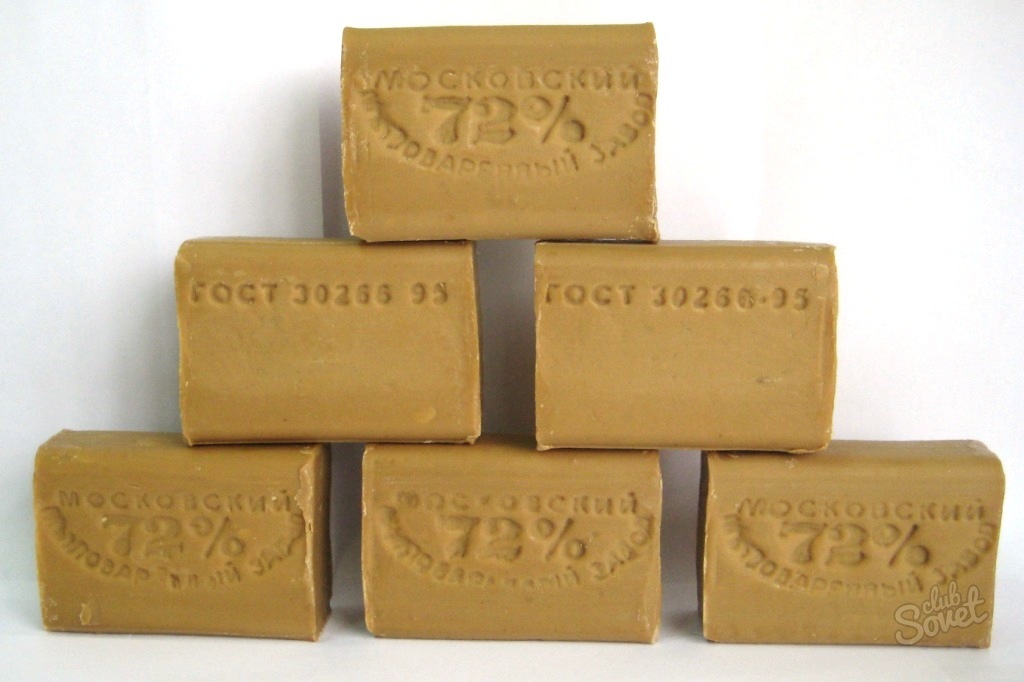The economic soap is an eco-friendly product, undeservedly forgotten with modern hostesses. It is performed without the use of preservatives and dyes, kills bacteria, has a powerful disrupting effect and does not cause allergies.
The first analogue of the household soap was released in Marseille. Initially, its composition included olive oil and salt. The production process was regulated at the state level. The presence of animal fats was not allowed. For violation, you could get a lifetime expulsion from Provence with property confiscation. In our country, the production of household soap is carried out in accordance with GOST 30266-95. He was adopted in 1995. According to GOST, the economic soap produces three types:- With a mass fraction of fat to 70.5%.
- With a mass fraction of fat up to 69%.
- With a mass fraction of fat up to 64%.
- In a large boiler, oil and alkali is mixed.
- The composition is boiled 10 days at a temperature of about 120 degrees.
- The mixture is then treated with sodium chloride and defended for 2 days.
- The mass is processed with clean water and bottled into large forms.
- For two days, it takes two days, after which the soap cut, pack and ship for sale.

- Castor oil - 20 grams;
- Natural coconut oil - 20 grams;
- Olive or sunflower oil - 160 grams;
- Alkali - 27 grams;
- Water is 100 grams.

When buying a household soap, pay attention to the inscription on the packaging. Quality goods must comply with GOST.


































